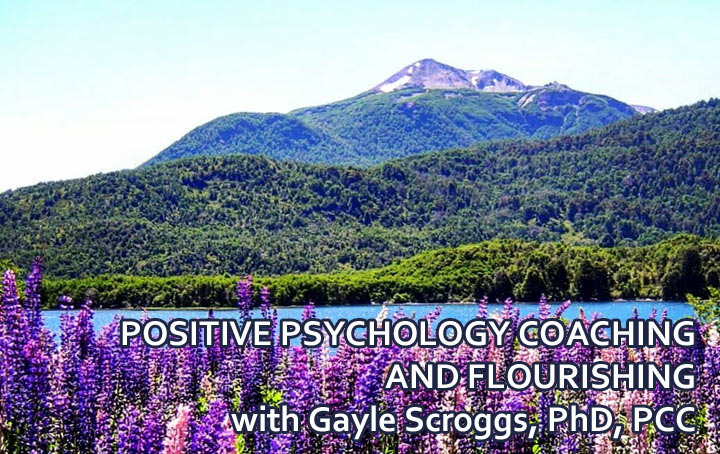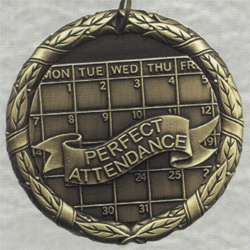 MentorCoach is proud to announce the following exciting master class:
MentorCoach is proud to announce the following exciting master class:
POSITIVE PSYCHOLOGY COACHING AND FLOURISHING
with Gayle Scroggs, PhD, PCC
 MentorCoach is proud to announce the following exciting master class:
MentorCoach is proud to announce the following exciting master class:
with Gayle Scroggs, PhD, PCC
Starts January 2026
8 classes of 90 minutes each
12 hours of CEs and ICF CCEs
12 hours toward CMC Coach Certification
Tuition:
$599
Or 3 payments of $215
(plus optional $75 for CA BBS CEs)
(plus optional $20 for ICF CCEs)
12 hours of CEs & ICF CCEs (Core Coaching Competencies)
Class size limited. First come, first served.
 Listen to Gayle talk with Ben Dean about her love of positive psychology, its essential power in coaching, how positive psychology can be integrated into any coaching practice, the rich toolbox of PP assessments and interventions that every student will receive, a vivid class description and much more. (19 mins)
Listen to Gayle talk with Ben Dean about her love of positive psychology, its essential power in coaching, how positive psychology can be integrated into any coaching practice, the rich toolbox of PP assessments and interventions that every student will receive, a vivid class description and much more. (19 mins)
Cultivate the best in yourself and others by understanding and applying the science of flourishing.
1. Who Should Attend?
Is your knowledge of positive psychology limited and superficial? Are you wondering how you can harness the best of the new science of well-being to foster flourishing in your clients as well as yourself? Do you want to know more about what is already going right in life—and how to enhance that with user-friendly strategies?
Not a coach? If you are a counselor, therapist, manager, leader, parent, or life adventurer, you will also find this an ideal starting point for integrating the fundamentals of positive psychology into your life and work. It’s all about how you can bring out the best in you and others.
In short, if you are ready to hone your expertise in applied positive psychology, this course is for you. Designed to enrich your understanding of the field and expand your coaching repertoire, this class offers evidence-based tools to promote success and well-being in you and your client.
2. What Will You Learn?
You will learn perspectives that allow you to appreciate the science and application of positive psychology that provide a solid grounding for your work and your life. You will see how the PERMA model that serves as the course framework can also serve as a framework for flourishing for you and others.
You will learn an array of practical tools that you can apply personally and professionally to promote success and well-being. The class offers myriad opportunities for modeling and practicing these strategies so that you can offer them to clients with confidence immediately.
You will become more aware of life’s possibilities as you delve into the realm of positive emotions and character strengths. Validated assessments will allow you to identify your own happiness, well-being, positivity, and strengths—and then do the same with your clients.
You will walk away with a deep appreciation for the value of gratitude, hope, curiosity, and other human emotions and strengths—and a hefty toolbox full of ways to cultivate them. You will be offered a new, surprising view of love and human connection that can foster deep well-being.
You will also learn how positive psychology coaches work with negative emotions and failure as we examine resilience and mindfulness-based practices. Positive psychology is not “happy-ology.”
You will discover how relationships are crucial for well-being and how to promote healthy connections. You will develop an understanding of the role of meaning and learn how to guide your clients to create more of it in their own lives.
You will find out ways to frame goals and foster motivation for greater achievement through consider the role of mindsets, mental contrasting, if-then planning, and more.
Finally, as positive psychology and its applications are constantly expanding, you will also learn how to pursue it further in formal and informal ways.
3. What If You’ve Already Taken a Positive Psychology Class?
If you’ve already taken an introductory positive psychology class:
This course is intended to be an introduction to the field. If you have already taken other introductory courses in positive psychology, it may still be on target for you if you want to update your existing knowledge, review the fundamentals, or see how a senior positive psychology coach and gifted teacher organizes and teaches this material. Finally, it may make sense if you want more opportunities to hone your skill at applying positive psychology concepts in your coaching and your life.
If you’ve already taken advanced positive psychology classes:
If you have taken other more advanced courses in positive psychology or have a solid foundation in the field, this class may not be for you–that is, unless you would like to deepen your mastery through review and/or see how a seasoned educator and coach teaches this class and applies positive psychology in her own practice.
4. The Eight Weeks:
Week 1: A Brief History of Positive Psychology. What is positive psychology? What paved the way for this new science of well-being? Who are some of the thought leaders? What impact is it having? What are some key concepts, especially the PERMA model of flourishing?
Week 2: Positive Emotions. What good are positive emotions? How does the broaden and build theory work? How can positive emotions be measured? How do they enhance well-being? How can we harness these “tiny engines of flourishing” for ourselves and others more effectively?
Week 3: Beyond Positive Emotions: How does positive psychology deal with negative emotions? What are some major approaches and tools for creating resilience? How does mindfulness help us flourish–and how can we enhance it?
Week 4: Engaging Character Strengths. What are character strengths—and how do they differ from other strengths? What important roles do they play in creating well-being and success? How can they be identified, developed, and used optimally?
Week 5: Relationships Matter. Why do other people matter? What positive psychology tools can we use to create and enhance healthy connections? How does “love 2.0” expand our understanding and possibilities?
Week 6: The Meaningful Life. What is the role of meaning in fostering well-being at work and in life? How can it be measured and nurtured in ourselves and others?
Week 7: Achieving Goals. What useful coaching perspectives and tools does research on goals and motivation offer? What is grit? What kind of mindset facilitates success? How can we be good stewards of our willpower?
Week 8: Review and Onward. What were the course highlights? How will you integrate positive psychology into your life and work? How might you continue your journey in positive psychology coaching?
5. Readings and Homework:
6. Open to All
There are no prerequisites for this class. It is open to all, both from within the MentorCoach Community and without. We love welcoming students from other coach training programs as well.
7. Class Time and Schedule
Starts January 2026
8. Course Tuition
Single Payment:
$599 (+ optional CE fee)
For CE information, see #11 below.
Monthly Payments:
Three monthly payments of $215 (+ optional CE fee)
For CE information, see #11 below.
9. Coach Certification
 This class provides 12 hours toward MentorCoach Certification as an elective for students meeting the class attendance requirement (See #12 below.) The 12 hours can also count toward ICF Certification via the ICF Portfolio Approach. And, most important, it provides 12 hours toward Positive Psychology Coaching Certification.
This class provides 12 hours toward MentorCoach Certification as an elective for students meeting the class attendance requirement (See #12 below.) The 12 hours can also count toward ICF Certification via the ICF Portfolio Approach. And, most important, it provides 12 hours toward Positive Psychology Coaching Certification.
NOTE: This class is a required course for MentorCoach’s Positive Psychology Coaching certification program. It is also relevant to MentorCoach’s other specific certification programs.
10. ICF Coach Continuing Education
 Live Class Attendance. This class is approved for 12 CCEs (ICF Core Competencies) from the International Coaching Federation for students meeting the class attendance requirement (see #12 below). There is a $20 fee for ICF CCEs.
Live Class Attendance. This class is approved for 12 CCEs (ICF Core Competencies) from the International Coaching Federation for students meeting the class attendance requirement (see #12 below). There is a $20 fee for ICF CCEs.
Listening by Recording. For students who will be listening to this class by recording, this class is approved for 12 CCEs (ICF Resource Development) from the International Coaching Federation for students meeting the class attendance requirement for listening by recording (see #12 below).
11. Board Continuing Education (CEs)

This class is approved for twelve hours of CEs for Marriage and Family Therapists in California (CA BBS). The CE administration fee is $75. CEs for psychologists (APA) are not provided for this class.
To receive credit for CEs, students must pay the CE fee and be present for 10 of the 12 class hours.
Note: The CE fee applies only if you are a Licensed Marriage and Family Therapist in California and need CEs from this organization. Otherwise, when you register, indicate that you do not need to pay the CE fee by choosing the “Base Unit Price with NO CE’s.”
12. Attendance Requirements
 To receive credit for ICF CCEUs in Core Competencies, credit toward MentorCoach Certification, Positive Psychology Coaching Certification, or to receive a Certificate of Completion, you must be present for 80% of the course, attending 10 of the 12 class hours.
To receive credit for ICF CCEUs in Core Competencies, credit toward MentorCoach Certification, Positive Psychology Coaching Certification, or to receive a Certificate of Completion, you must be present for 80% of the course, attending 10 of the 12 class hours.
Every class is recorded, so you can listen again or hear a class you have to miss. As long as you attend 10 of the 12 class hours, you will meet the attendance requirement. If you cannot meet the attendance requirement, you can still earn ICF CCEUs in Resource Development by listening to all 8 classes (see #13 below).
13. Listening by Recording.
 Every class is recorded. Some students may listen to some or all of the classes by recording at their leisure, sometimes emailing in questions to Gayle between classes. We applaud and support this practice. We know one well-known Australian professor who used to end his week listening to the recordings of Chris Peterson’s lectures on Friday evenings, drinking white wine and reclining in his hot tub.
Every class is recorded. Some students may listen to some or all of the classes by recording at their leisure, sometimes emailing in questions to Gayle between classes. We applaud and support this practice. We know one well-known Australian professor who used to end his week listening to the recordings of Chris Peterson’s lectures on Friday evenings, drinking white wine and reclining in his hot tub.
Note: Listening to all eight sessions of the class by recording DOES qualify the student to receive twelve hours of ICF CCEUs in Resource Development. For students who will be listening to this class by recording, this class is approved for 12 hours of ICF CCEs (Resource Development) from the International Coaching Federation. To qualify for these ICF CCEs, students must notify Gayle early in the course of their intent to take the class by recording. Attendance-by-recording students must listen to all recordings and submit all class attendance codes within a week after the final class. They may also be asked to pass an open-book exam over the course content.
14. Refund Policy

You may withdraw your registration at any time before the beginning of the second class and receive a full refund. You are responsible for the full tuition amount if you do not withdraw before the beginning of the second class.

Living on the Argentine Pampa after decades as a psychology professor in New York, Gayle was already in the process of reinventing her life and career when she heard about Martin Seligman’s vanguard course, Authentic Happiness Coaching in 2003. She jumped at the chance to learn Positive Psychology firsthand from its founder—and was thrilled to discover coaching as the ideal way to fulfill her mission of sharing the best of psychology to help others flourish.
Overcoming countless obstacles, including unreliable phone lines and a shaky internet service, she earned her treasured CMC and PCC credentials while living in South America. Keen on absorbing local culture and fluent in Spanish, she cofounded the Argentine chapter of the International Coach Federation while also becoming the first person to offer positive psychology coaching and workshops there.
She remains grateful to MentorCoach’s innovative training that allowed her to learn directly from luminaries in positive psychology, including Peterson, Fredrickson, Baumeister, and others. No less important, she adds, were the Argentinian connections and experiences that permitted her to experience more deeply what it means to live with gratitude, love, joy, and meaning.
She was delighted to give back by designing and facilitating the MentorCoach Resource Group—a weekly call for new coaches to build their confidence, business know-how, and connections—a seven-year stint which earned her the Learning Pillar Award and an international network of similarly committed coaches.
Her colleagues and friends consider Gayle a Positive Psychology evangelist, spreading the good news of flourishing with as many people as she can. She teaches it, trains professionals on applications, integrates it fully into her own coaching practice, and applies Positive Psychology to her own daily life.
She continues to edit MentorCoach’s longest running newsletter, the All-but-Dissertation Survival Guide, which offers doctoral candidates positive psychology-based strategies for success. With a dozen talented MentorCoach colleagues, she co-authored the positive psychology anthology Women’s Paths to Happiness. Most recently, with her extensive grounding in social psychology and coaching, Gayle developed the first positive psychology dissertation coaching master class featuring her own “Four-Wheel Drive Model” of goal coaching–an original integration of positivity, strengths, motivation, and mindfulness. Highly respected as a teacher and mentor, newer coaches especially appreciate her expertise, enthusiasm, and empathy as she guides them to become more adept at applying positive psychology themselves.
Now settled into a vintage parsonage on Maryland’s quiet Eastern Shore, Gayle coaches and writes full-time. She also volunteers in the community because, as she says, “Walking the positive psychology talk is its own reward.”

